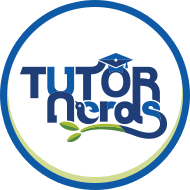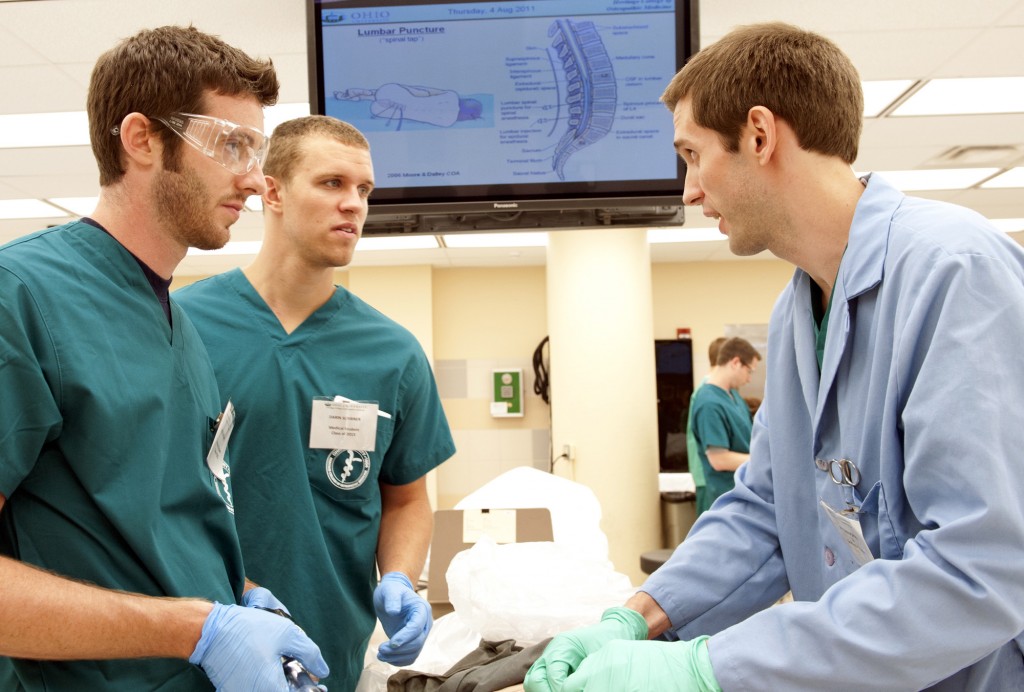Becoming a Competitive Medical School Applicant (Part II) | TutorNerds


As we continue our “becoming a competitive medical school applicant” series, we hope you start to pick up on the fact that it’s a collection of efforts and events that gets you into medical school, not a single score or grade. That being said, it’s important you don’t burn yourself out or develop anxiety problems before you even start classes! Take a deep breath and know you’re not alone. With the help of your parents, your contemporaries, and an orange county private medical school consultant, you can make anything happen. Read on for more med school tips.
High pre-med grade point averages never happen due to random chance. However, it is not nearly as difficult as it may appear with good planning that begins even before each academic year. Believe it or not, the biggest challenge of all is striking an ideal balance between science and humanities subjects prior to the start of each fall semester.
To chart the best future course of study, most medical school admissions consulting experts suggest an equal mix of scientific and nonscientific choices. This allows your brain to develop dynamically and avoids a complete science burn out. Further, many leading minds in science, medicine, and mathematics draw inspiration and ideas from outside their respective fields. Who knows, you may find your humanities course a nice stress reliever after a morning of grueling anatomy classes. Just remember to do well in these courses. You don’t want to jeopardize your medical school admissions chances because you failed “Shakespeare 101.”
An excellent Medical College Admissions Test (MCAT) score makes your odds of getting into medical school soar. While college-level science coursework imparts adequate knowledge to ace the MCAT’s science section, the verbal comprehension portion is trickier. This is because no single course will give you a guaranteed advantage. Rather, students must possess stellar critical reading skills if they want to do well on the verbal portion. That’s right, you might want to start reading that copy of “War and Peace” your aunt gave you for Christmas three years ago.
Competent medical school consultants agree that bookworms and testees with strong humanities backgrounds do much better on the MCAT’s verbal reasoning portion. The reason why is that the written materials presented are not like scientific texts and thus require an entirely different reading perspective. Therefore, as responsible medical school admissions consulting professionals, we strongly urge students to get an early start on admission application acceptance by frequently feasting their eyes and feeding their minds with good books and magazines (need a place to start? Consider the classics: Top 100 Books of All Time). Finally, we further recommend a lighter course load and at least three months of lead time to complete MCAT preparatory study.
Having a proven history of practical experience in actual healthcare environment(s) is critical for hopeful medical students. As already stated, med school admission committees are leery of candidates with no clue about the daily lives of doctors. Thus, the more college-level clinical learning you obtain the more likely you are to gain medical school admission.
Most medical school consultants advise clients to focus on philosophical rather than financial interests for the best clinical experience(s). While volunteerism ops are most voluminous opportunities in that respect, paid clinical learning experiences have their own distinct values as well. In other words, one is not better than the other, so it’s up to you to decide which route works best for your schedule.
Any accurate survey of the entire medical school admissions consulting field would surely reveal an overwhelming consensus that clinical work must start as a freshman. Fortunately, this is quite doable, as it takes as few as four hours per week to accumulate significant skills to educate oneself in a practical setting. What are you waiting for?
 Primary clinical training prototypes
Primary clinical training prototypesBelow are the prime avenues to gain clinical exposure and subsequent medical school admission. We also provide a brief list of pros and cons for each path that our medical school admissions consultant staff commonly notes.
This route can be very rewarding, as inpatient hospital settings provide a glimpse into a wide variety of medical disciplines from a diversity of intimate viewpoints. Medical university admissions committees find such a large range of real-life experience quite impressive. This is particularly true because medical students obtain much of their training in hospital residency settings. Many hospitals have summer internship programs, so don’t wait until the last minute to grab a spot (St. Joesph Hospital Orange, CA volunteer).
Most medical school admissions consulting experts concur that outpatient clinics are optimal to gain a huge competitive edge for med school entry. Our standard recommendation for any medical school applicant who opt to take this path to practical healthcare experience is working in the back office where the real action occurs. Front office medical clinic landscapes are limited to laborious piles of paperwork. Free clinics that serve underprivileged clientele typically have more openings, due to more limited funding as well as liberal opportunities to participate in public health fairs and other community service events.
Premedical college majors are eligible for employment as regional hospital ER scribes. These positions offer an excellent opportunity for direct patient interaction and constant contact with doctors that give students great exposure to clinical decision-making processes.
Earning a license as an emergency medical technician is a terrific tool to learn what acute treatment environments are truly like. Three caveats to keep firmly in mind before pursuing the EMT path include:
a) licensure alone is insufficiently impressive for medical school admissions committees, unless backed up with actual work experience; b) field exposure from EMT employment must be enhanced by hospital or healthcare clinic experience; and, c) EMT training and certification entails investing considerable time, energy and money.
Stay tuned for part three of our medical school admissions series!

100% Satisfaction Guarantee
You’ll love your tutor, or you don’t pay.

We will evaluate your situation and answer any questions. We will then individually match you with one of our tutors. Your tutor will recommend the best strategies for you based on your goals. You’ll work with the same tutor ongoing and you can schedule directly with your tutor.
100% Satisfaction Guarantee – You’ll love your tutor, or you don’t pay
| Cookie | Duration | Description |
|---|---|---|
| cookielawinfo-checkbox-analytics | 11 months | This cookie is set by GDPR Cookie Consent plugin. The cookie is used to store the user consent for the cookies in the category "Analytics". |
| cookielawinfo-checkbox-functional | 11 months | The cookie is set by GDPR cookie consent to record the user consent for the cookies in the category "Functional". |
| cookielawinfo-checkbox-necessary | 11 months | This cookie is set by GDPR Cookie Consent plugin. The cookies is used to store the user consent for the cookies in the category "Necessary". |
| cookielawinfo-checkbox-others | 11 months | This cookie is set by GDPR Cookie Consent plugin. The cookie is used to store the user consent for the cookies in the category "Other. |
| cookielawinfo-checkbox-performance | 11 months | This cookie is set by GDPR Cookie Consent plugin. The cookie is used to store the user consent for the cookies in the category "Performance". |
| viewed_cookie_policy | 11 months | The cookie is set by the GDPR Cookie Consent plugin and is used to store whether or not user has consented to the use of cookies. It does not store any personal data. |
